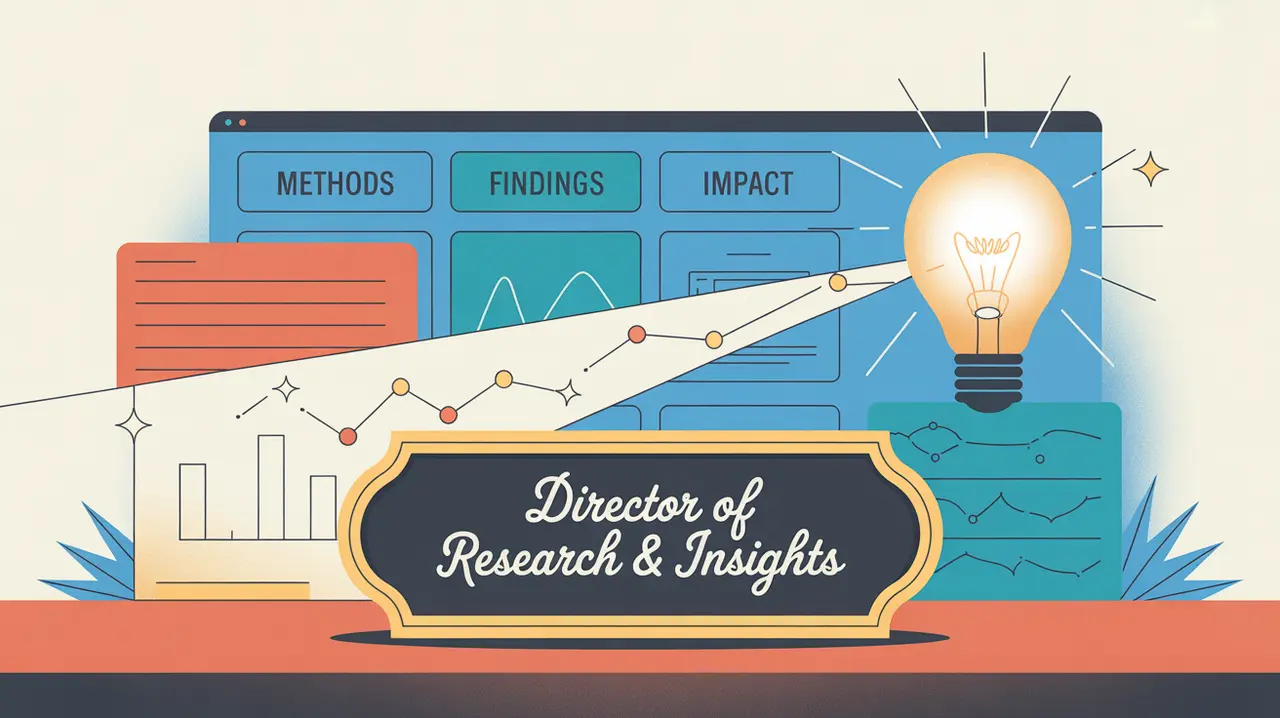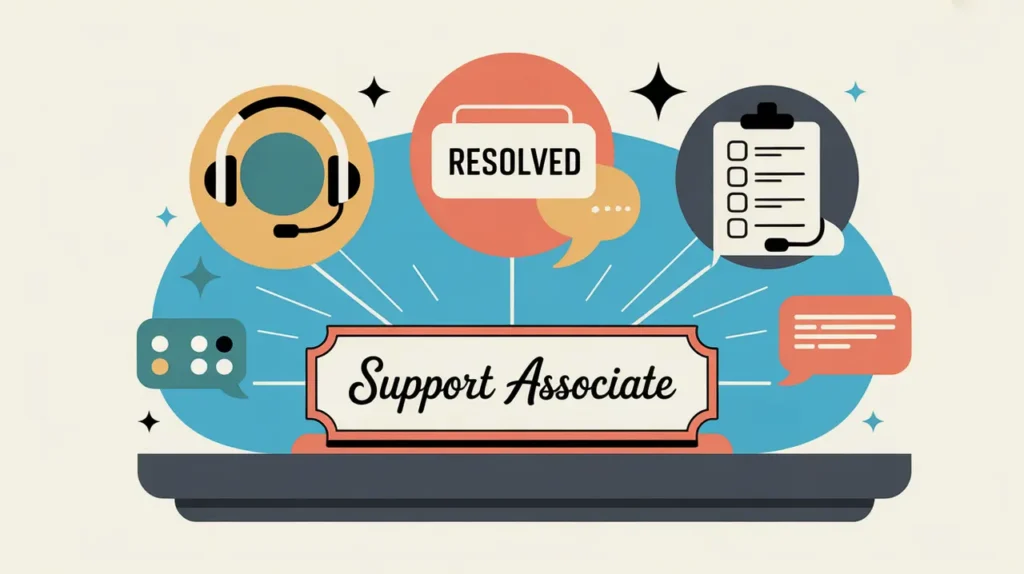What Does the Director of Research and Insights Role Involve?
A director of research and insights is responsible for leading the organization’s research agenda and insights strategy to generate credible evidence, inform decision making, and strengthen impact. This involves overseeing research design and implementation, ensuring methodological rigor, leading data analysis, and translating findings into actionable intelligence for strategy, programs, and stakeholder engagement. The role typically sits within the executive, strategy, or data function and works closely with program teams, monitoring and evaluation teams, communications, and leadership. In both nonprofits and social enterprises, directors of research and insights play a critical role in building the organization’s knowledge base and shaping its strategic direction through evidence.
At What Level does this Role Operate?
Executive Level: This role typically reports to the chief data officer, chief strategy officer, or chief executive officer. It involves setting research and insights strategies, managing cross-functional teams, ensuring methodological excellence, and advising leadership on evidence-based planning and positioning.
Relative Employability: Director of research and insights roles are in growing demand across nonprofits, social enterprises, philanthropic organizations, and international NGOs. As organizations place more emphasis on demonstrating impact, shaping narratives through evidence, and using data for strategic decisions, experienced research and insights leaders have become highly sought after.
Relative Pay Scale: Within nonprofits and social enterprises, director of research and insights roles sit in the executive pay bands, reflecting their strategic influence, leadership responsibilities, and role in shaping organizational intelligence and credibility.
What are the Key Responsibilities and Activities?
- Develop and lead the organization’s research and insights strategy to align with mission and strategic priorities
- Oversee the design and implementation of qualitative, quantitative, and mixed-methods research projects
- Ensure methodological rigor, ethical standards, and data quality across all research and analysis activities
- Manage teams responsible for research, analytics, and knowledge generation
- Collaborate with program, strategy, and communications teams to translate findings into actionable insights and narratives
- Build systems for data governance, evidence management, and dissemination of research outputs
- Identify knowledge gaps, emerging trends, and opportunities to strengthen evidence for strategy and programming
- Represent the organization in research partnerships, networks, and external forums to enhance influence and visibility
- Present insights clearly and strategically to leadership, boards, funders, and other stakeholders
What Core Competencies and Qualifications are Needed?
Required Qualifications and Experience
The following reflect common qualifications and experience expected for this role, while recognizing that pathways may vary by context, organization, and region.
- Relevant academic background in research methods, data science, economics, public policy, social sciences, or a related field, or equivalent professional experience
- Extensive experience in research leadership roles, including strategy development, methodological oversight, and team management
- Strong understanding of data governance, research ethics, and evidence dissemination practices
- Proven ability to lead complex research agendas and translate findings into strategic insights
- Excellent analytical, communication, and partnership-building skills
Key Competencies
- Research strategy and leadership
- Methodological design and oversight
- Insights generation and translation
- Data governance and ethical research practices
- Cross-functional collaboration and knowledge management
- Strategic communication and external representation
How are AI and Automation Shaping this Role?
An AI-native director of research and insights will look to AI and automation to enhance the scale, speed, and depth of research and analysis. They can use AI tools for predictive analytics, natural language processing, literature reviews, and large-scale data synthesis. Automation can support data cleaning, analysis pipelines, and reporting, allowing research leaders to focus on interpretation, insight generation, and strategic application. By integrating AI thoughtfully, directors of research and insights can produce higher quality evidence more efficiently and position their organizations at the forefront of knowledge-driven impact.
What Career Pathways and Transferable Skills are Associated with this Role?
Director of research and insights roles can lead to positions such as chief data officer, chief strategy officer, or other senior executive roles. The skills developed in research leadership, methodological rigor, insights generation, and strategic communication are highly transferable across nonprofits, social enterprises, philanthropic organizations, academic institutions, government agencies, and private sector research entities. This role provides a strong platform for shaping how organizations generate, interpret, and use evidence to drive strategy and impact.







